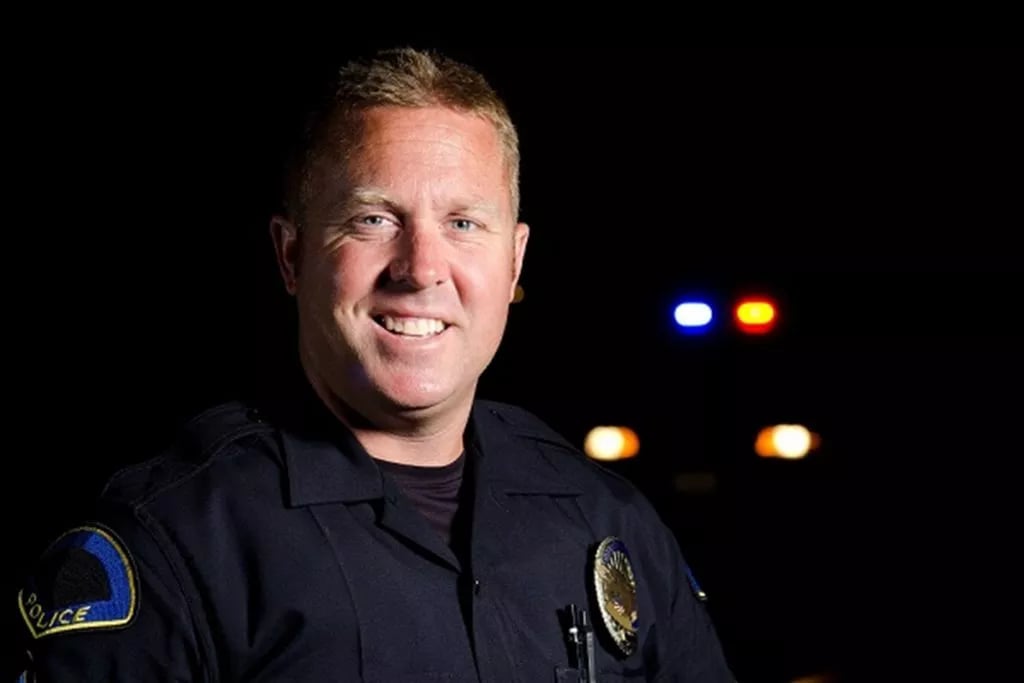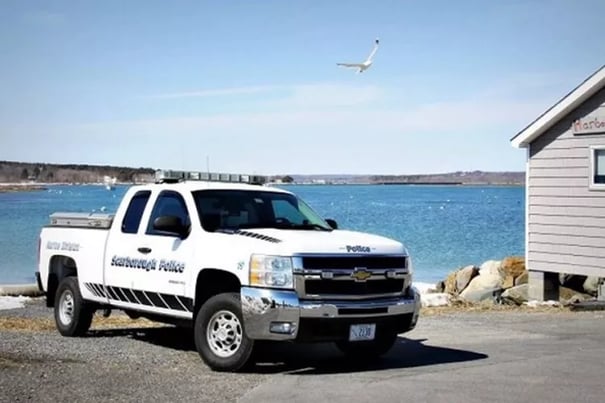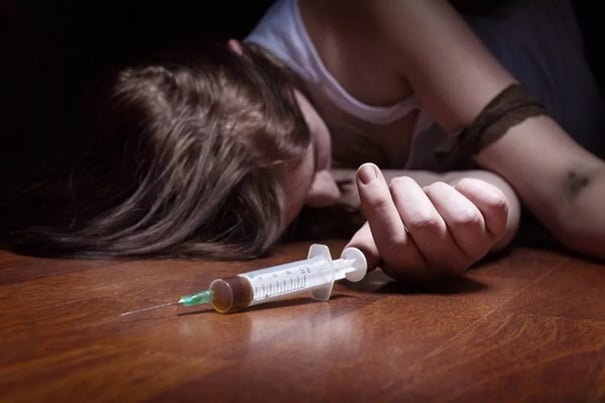There’s a saying used by some alcoholics to describe their allergy: “Whenever I drink, I break out in handcuffs.” While humorous, this hints at a major problem faced by addicts and alcoholics. Those who struggle with substance abuse often find themselves on the wrong side of the law. When in an altered state and free of inhibitions, they do things they might not even consider doing when sober. But imagine a place where addicts struggling with heroin or opioid use never had any reason to fear encounters with law enforcement. Thanks to Operation HOPE, such a place exists in Maine.
Scarborough Police Department launched Operation HOPE in October of 2015. The name “HOPE” stands for “Heroin-Opiate Prevention Effort”, but also refers to the second chance given to those who choose to take advantage of this life-saving program. Addicts willing to enter the Scarborough Police Station with drugs and paraphernalia in hand receive the chance to forgo legal proceedings. Instead of being arrested, the police dispose of the drugs and provide addicts with access to addiction treatment. Modeled after a similar program in Gloucester, Massachusetts, Operation HOPE provides what many addiction specialists claim drug users need - treatment instead of prison. But in this case, Scarborough offers treatment without even making an arrest.
Of course, Maine isn’t the only state currently struggling against a burgeoning drug epidemic. As the opioid epidemic continues to snake its way through New England and beyond, we may need many more programs such as Operation HOPE in order to get addicts through the doors of treatment and into recovery. But for now, let’s discuss the specifics of Operation HOPE and its success thus far. In doing so, we just may learn more about how our communities can quietly fight the spread of drug addiction.
The Details of Operation HOPE


Operation HOPE relies heavily on the help of partners they refer to as “Angels.” These Angels include compassionate individuals from around the community who care about getting addicts into recovery. Some of them have friends or family members who struggle with addiction. A fair number have seen loved ones die. Some remain personally unaffected by the opioid epidemic, yet simply cannot watch others suffer. In addition to these Angels, Operation HOPE also relies on numerous participating residential treatment centers.
Treatment centers actually do much more than simply take in those who participate in Operation HOPE. They also provide Angels and officers in the Scarborough Police Department with special training. This enables officers and volunteers to understand the addict mindset, allowing them to better deal with those who seek treatment. Without the help of such organizations, Scarborough might lack the resources to run such a dedicated program. Currently, Operation HOPE only serves those struggling with opiate addiction, but those with other addictions may still seek help from partnering treatment centers if they wish.
Scarborough Police Department funds Operation HOPE largely through grants and other sources of private funding. Since Operation HOPE is not a government program, they are unable to rely on tax dollars. Instead, they set up their funding through the Police Assisted Addiction and Recovery Initiative (PAARI). This initiative works with forty different treatment centers, spread across seventeen states. Not only do they assist police departments such as Scarborough in setting up programs to help addicts, but they also appeal to legislators to have addiction reclassified as an illness, thereby eliminating the stigma that often turns members of the public against such programs. By fighting the stigma, they help programs such as these overcome major roadblocks in acquiring funds.
Operation HOPE’s Success Rates

During its first three days, only eight people entered Scarborough Police Department seeking help. Six received treatment or medical care, while two ultimately chose not to receive help. However, while some who approach the police for information on Operation HOPE choose not to receive treatment, their sheer interest in recovery is a promising sign. Every walk-in, whether or not it leads to treatment, is nothing short of a small miracle. As noted by Officer John Gill:
“From a personal, human perspective, the responses we have seen from people suffering from substance use disorder have been remarkable. It takes a tremendous amount of courage for these folks to walk through the doors of a police department to ask for help. Most of these folks have spent the better part of their adult lives trying to avoid the police.”
To date, Operation Hope has placed more than 1000 individuals in addiction treatment. Now Scarborough Police are saying that they can no longer effectively manage the program due to its unexpected growth.
Since various participating treatment centers may require insurance coverage, Operation HOPE includes an eligibility screening. In the year following since the program’s commencement began, 214 have been placed in long-term treatment following the screening process. Of these, 148 were not covered by insurance. Furthermore, after recovery centers followed up with 98 of program participants, 79 reported continued success in recovery. This percentage ranks above usual success rates in recovery.
Perhaps the need to enter Operation HOPE on a voluntary basis indicates greater commitment to sobriety. Court-appointed treatment following an arrest may do some good in many cases, but allowing addicts to turn themselves in seems to work even better.
How You Can Participate in Operation HOPE

Maine-based opiate addicts over the age of 18 can participate in Operation HOPE by visiting Scarborough Police Department between 7AM and noon, Monday through Friday, except for holidays. It is best if participants detox fully beforehand, although those with insurance may seek treatment facilities that can assist in detoxification. Operation HOPE does their best to help those without insurance, yet cannot make any promises. They also do their best to help form travel arrangements for those placed in treatment centers outside of Maine. Those who wish to donate to Operation HOPE may do so through Project GRACE.
A Personal Success Story

One of Operation HOPE’s success stories is Erica Maxim, a 30-year-old mother with just over a year of sobriety behind her. Upon entering the intake room at Scarborough, she told the police:
“I know I can be better than this. I really want to be a better mother for my son. I’m very nervous, not knowing what to expect, not knowing what the future holds, but am hopeful that this program will be able to help me out and I’ll come out on the other side a different person.”
After entering treatment, Maxim learned how to overcome her cravings. Motivated by the love of her 2-year-old son, she found the strength to move past her five-year struggle with heroin addiction. She knows that she must keep working to remain sober, but she expresses gratitude in her interview with ABC 8 of Maine:
“Without Operation HOPE or Scarborough Police or any resources like that, I’m sure a lot of people would still be in addiction or, worse, dead. That could have been me, but I’m sitting here today, still alive.”
Maxim’s story is just one out of hundreds. But while Operation HOPE has proven successful so far, we must still consider the future of the program if we wish to continue seeing such progress in New England’s fight against the heroin epidemic.
Hope for New England’s Future

Unfortunately, Operation HOPE is not without its critics. One major criticism lodged against the program revolves around the relative lack of medication-assisted treatment such as Suboxone. Program Manager Stephen Cotreau of the Portland Recovery Center comments on this:
“The only option that we have for those that are uninsured is the treatment that is donated to us. To date, no one has offered free MAT. … Free treatment is getting harder and harder to find. Without a permanent funding source, the program is doomed.”
Lack of funding is the same concern shared by critics of Donald Trump’s addiction plan, which relies heavily on the underfunded Comprehensive Addiction and Recovery Act (CARA). And while organizations such as PAARI prove relatively successful in acquiring private grants, addiction continues spreading. Ideally, programs such as Operation HOPE would spring up in police departments across the country. But such an idealistic vision of the future would require all police departments to receive the same grants and partnerships currently relied upon in Scarborough.
To put this into perspective, we must look at the numbers of drug users versus uninsured Americans. In 2013, a combined 6.8 million Americans abused heroin or prescription drugs. As of 2016, an estimated 27.2 million Americans currently live without insurance. Naturally, it’s difficult to determine the precise overlap between substance users and uninsured Americans. But given that 210 of Operation HOPE’s original walk-ins (about 49.5%) left without treatment, it appears that the lack of free treatment does throw something of a wrench into the program. Unfortunately, while free treatment is a nice idea, it’s entirely unfeasible without either universal health care or government funding for treatment centers. As of now, our administration lacks the budget to make either of these things a possibility.
Hope for Operation HOPE in Scarborough, Maine

As we continue searching for long-term solutions, programs like Operation HOPE continue fighting to stem the New England heroin epidemic. In the meantime, we can take our own steps to ensure their ongoing work. We can donate funds, allowing them to keep finding beds for uninsured substance abusers. We can also spread the word about such programs so that more people learn of and hear about their benefits. In these ways, we enable such programs to remain in operation. And you never know - their continued success just might lead to more police departments following in their footsteps. One day, all substance abusers in need of help may find themselves with somewhere to turn.
In the meantime, at least we know that opiate addicts in Maine are able to seek help and support. Operation HOPE may not single-handedly eliminate the New England drug epidemic. But they’re doing what they can to make a dent. And that’s a very good start!


